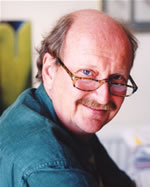 Professor Edzard Ernst (photo) from the Peninsula Medical School, Universities of Exeter & Plymouth UK has published an editorial in the British Medical Journal.
Professor Edzard Ernst (photo) from the Peninsula Medical School, Universities of Exeter & Plymouth UK has published an editorial in the British Medical Journal.
He sums up the state of the debate and makes a few surprising comments.
He starts, “Having devoted the past 15 years to this very question, I sometimes get disheartened about 2 highly counter-productive yet prevalent attitudes. The first might be summarized by the statement, “there is no reasonable evidence on CM [complementary medicine]â€, and second by the notion, “scientific evidence cannot be applied to CMâ€.
I’ll focus on the first. You can read the editorial for more on the second.
CAMophobia
“Skeptics who are emotionally opposed to CM,” says Prof, Ernst, “have a knack of ignoring the evidence that relates to this field. This proclivity is aggravated and perpetuated by the fact that mainstream journals rarely publish positive findings in CM (while CM journals hardly ever publish negative ones). Thus, the typical reader of The New England Journal of Medicine, for instance, would get the impression that, firstly, very little serious research is being conducted in CM, and, secondly, that all the studies that do emerge demonstrate CM to be utterly useless, or even dangerous.â€
The truth.
Prof. Ernst asserts, “There are now thousands of clinical trials of various forms of CM and hundreds of systematic reviews. The knee-jerk reaction that “they are all rubbish†is … incorrect. Indeed, on average, they compare very well in terms of methodological quality with trials in conventional medicine.”
“Yes, there is now plenty of evidence, and much of the recent research is reasonably sound, but by no means does all the evidence demonstrate that the treatment under investigation generates more good than harm.”
The bottom line?
The professor concludes, “The main reason why CM has become important is not the eagerness of doctors… Many people are ready to pay considerable amounts of money from their own pocket for CM.â€
“Patients are being continually and seriously misled by just about every source of information imaginable — even by government-sponsored initiatives. It follows, I think, that change is necessary, and positive change is best achieved if we begin to produce reliable information specifically for lay people — a task to which I have recently devoted much time and effort.â€
Me too.
4/18/08 10:19 JR